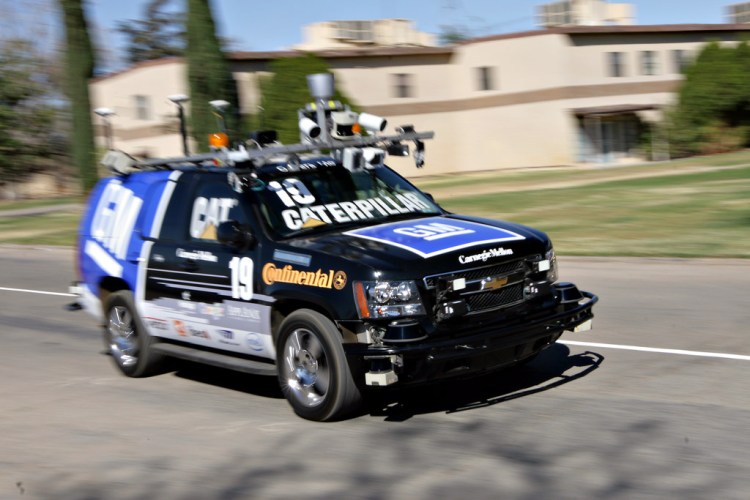This week, VentureBeat held its largest AI conference in company history. Front and center were startups tackling compelling challenges, as well as executives from the largest AI companies in the ecosystem, like Microsoft, Google, Facebook, and Amazon.
With seven stages and more than 1,000 attendees over two days, it’s tough to convey everything that happened, but here are a few highlights.
Set the table
AWS AI VP Swami Sivasubramanian and Facebook’s AI VP Jérôme Pesenti lead some of the largest AI operations on Earth, and both agree that if companies want to scale their AI programs or become AI-first companies, they need to get their data house in order first.
Whether you hire a chief data officer or call your data lead by another title, developing an data strategy should come before considering AI for your business, Sivasubramanian said.
“The number one thing I can say there is you want to get your data strategy right, because if you don’t, when you end up hiring a machine learning scientist and you expect them to come and invent amazing new algorithms, the reality is they spend a large percent of their time dealing with data cleanup and data quality setup and so forth. So getting your data strategy right is probably one of the hardest things,” he said.
Leadership from the top is essential
Whether businesses are incorporating IoT sensors with legacy industries, starting AI initiatives, or working on responsible and equitable deployment of AI systems, success needs buy-in and support from the top.
Hypergiant chief strategy officer John Fremont said the question is whether you are willing to invest 12 months into building an AI system. He said if you “don’t have top-down support and understanding for bottom-up initiatives, you’re going to fail miserably because there’s going to be … a longer timeline for ROI.”
Recognizing this need, both Landing.ai’s Andrew Ng and Microsoft have in recent months pushed education initiatives — like the AI Business School made especially for business executives.
Compute and the future of AI
Intel VP and CTO of AI products Amir Khosrowshahi and general manager of IoT Jonathan Ballon said new materials could change the way chips are made and further democratize access to compute. By contrast, Facebook VP Jérôme Pesenti talked about Facebook’s 5 times growth in AI training compute use, saying the accelerating scale of compute use is “what keeps me up at night.”
Advances in optimization and software will be essential to the future of AI, he said.
OpenAI found that compute necessary for state-of the-art results has grown 10 times annually since 2012.
Applied AI ain’t easy
One of the overarching themes of the conference was applied machine learning, or AI in production today. A number of recently introduced tools aim to help professionals who use AI collaborate and make interoperability possible, but a fair number of AI projects still fail, IDC reported earlier this week.
Cloudera’s Hilary Mason routinely shares insights into lessons learned by enterprise customers. To avoid sabotaging your own AI project, Mason says managers need to know the limitations of the systems they use and let their teams do their jobs. Landing.ai VP of transformation Dongyan Wang suggests businesses start small.
Don’t take a job at a company without a clear AI strategy
Google Cloud Platform AI head Andrew Moore urged developers to skip job offers from companies that have trouble articulating their purpose.
“If you find yourself in an organization where they are saying, ‘Hey, we’re going to introduce AI because our competitors are using AI,’ there is a danger they will be using AI without connecting it to a business model,” he said. “I would just walk away from a project that doesn’t know why it’s using AI,” he said.
Acknowledging industry leaders
This year, VentureBeat held its first-ever AI Innovation awards ceremony to honor companies and individuals moving the industry forward.
Among the winners: Bossa Nova Robotics inventory robots and computer vision for outstanding business innovation; Corti’s deep learning for identification of cardiac arrest events during emergency phone calls for outstanding NLP; and the work of Joy Buolamwini, Timnit Gebru, and Inioluwa Raji highlighting gender, age, and race disparity in the most-used facial recognition systems in the world.
VentureBeat also handed out Women in AI awards, and AI mentor and rising star awards. Attendance at Transform by people who identify as women went up from 5% last year to 30% this year.
Check the AI channel this weekend or early next week for a story on responsible deployment of AI and how to avoid ethics washing.
Both the awards and the conference itself are part of our continued work to not just to cover AI news but help unite the disparate AI ecosystem.
See this link for complete Transform 2019 coverage.
As always, if you come across a story that merits coverage, send news tips to Khari Johnson and Kyle Wiggers — and be sure to bookmark our AI Channel and subscribe to the AI Weekly newsletter.
Thanks for reading,
Khari Johnson
Senior AI staff writer
VentureBeat's mission is to be a digital town square for technical decision-makers to gain knowledge about transformative enterprise technology and transact. Learn More

